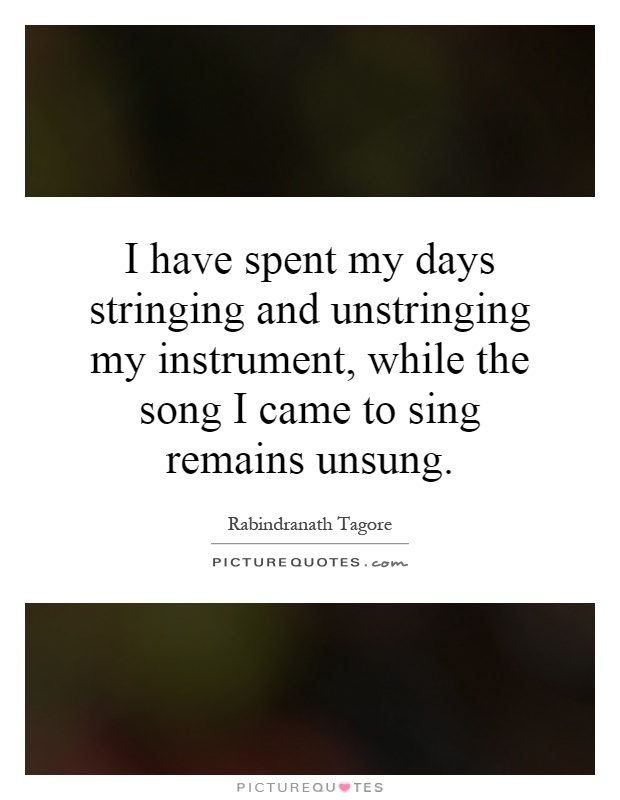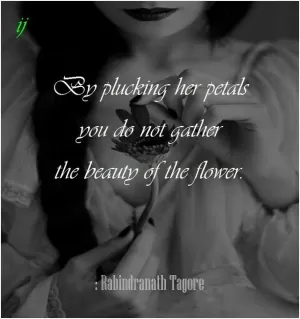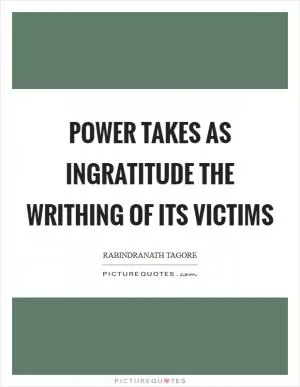I have spent my days stringing and unstringing my instrument, while the song I came to sing remains unsung

I have spent my days stringing and unstringing my instrument, while the song I came to sing remains unsung
Rabindranath Tagore, the renowned poet, philosopher, and Nobel laureate, penned the poignant words, "I have spent my days stringing and unstringing my instrument, while the song I came to sing remains unsung." These words encapsulate the essence of a profound sense of unfulfilled potential and unrealized dreams.Tagore, a prolific writer and composer, was a master of expressing the complexities of human emotions and experiences through his poetry and music. His works often delved into themes of love, nature, spirituality, and the human condition. However, despite his immense talent and creativity, Tagore grappled with feelings of inadequacy and a sense of unfulfilled purpose.
The metaphor of stringing and unstringing an instrument can be interpreted in various ways. On one level, it may symbolize the constant tinkering and refining of one's craft, the endless pursuit of perfection and self-improvement. Tagore, a perfectionist by nature, was known to meticulously revise and edit his works, always striving to capture the true essence of his thoughts and emotions.
On a deeper level, the act of stringing and unstringing the instrument may also represent the internal struggle and self-doubt that many artists face. The fear of failure, the pressure to live up to one's own expectations, and the uncertainty of whether one's true voice will ever be heard can all contribute to a sense of frustration and stagnation.
Despite his immense success and acclaim, Tagore was no stranger to these feelings of doubt and insecurity. He often grappled with the weight of his own legacy and the burden of living up to the expectations of others. In the midst of this internal turmoil, the "song" that he came to sing, his true purpose and calling, remained elusive and unattainable.












 Friendship Quotes
Friendship Quotes Love Quotes
Love Quotes Life Quotes
Life Quotes Funny Quotes
Funny Quotes Motivational Quotes
Motivational Quotes Inspirational Quotes
Inspirational Quotes